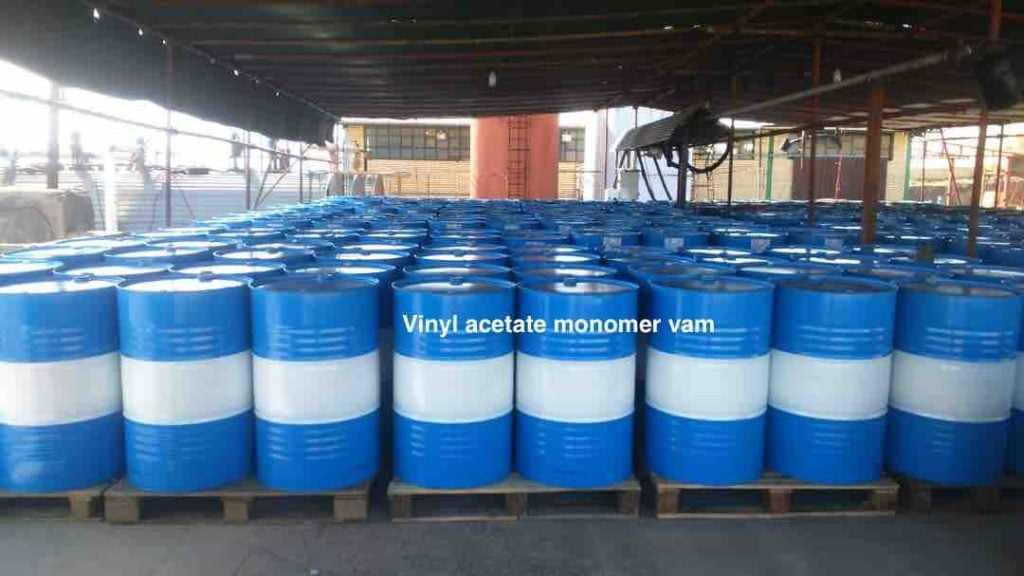
Vinyl acetate monomer VAM
Vinyl acetate monomer (VAM) is a key chemical compound used in the production of various polymers and resins, particularly polyvinyl acetate (PVA) and its copolymers. It is a clear, colorless liquid with a pungent odor. Vinyl acetate monomer vam primarily comes through the reaction of ethylene and acetic acid in the presence of oxygen and a catalyst, typically a palladium catalyst.
Polyvinyl acetate, derived from VAM, is widely in:
Adhesives, paints, coatings, textiles, and other applications due to its adhesive properties, flexibility, and water resistance. Additionally, VAM is utilized in the manufacture of vinyl chloride-vinyl acetate copolymers. Can be used in the production of polyvinyl chloride (PVC) plastics.
VAM plays a significant role in various industries, including adhesives, construction, automotive, packaging, and textiles. Its versatility and wide range of applications make it a valuable chemical in modern manufacturing processes.
vinyl acetate monomer vam different usages
Vinyl acetate monomer (VAM) is a versatile chemical compound with several different usages across various industries. Some of the key applications of VAM include:
Polymer Production
VAM is primarily is in the production of polyvinyl acetate (PVA) and its copolymers. These polymers find applications in adhesives, paints, coatings, and textiles due to their adhesive properties, flexibility, and water resistance.
Adhesives
Polyvinyl acetate (PVAc) derived from VAM is commonly in various types of adhesives, including wood glues, paper adhesives, and packaging adhesives. PVAc adhesives offer strong bonding properties and are widely in woodworking, paper converting, and packaging industries.
Coatings and Paints
Utilized VAM polymers can be in the formulation of coatings and paints for applications such as architectural coatings, automotive coatings, and industrial coatings. These coatings offer good adhesion, durability, and weather resistance.
Textile Applications
VAM polymers are in the textile industry for textile finishing, stiffening fabrics, and creating specialty coatings on fabrics to impart specific properties such as water repellency.
Emulsion Polymers
VAM is in the production of emulsion polymers, which are in various applications such as paper coatings, carpet backing, and nonwoven fabrics.
Packaging Materials
VAM-derived polymers are in the production of packaging materials such as laminates, films, and adhesives for flexible packaging applications.
Construction Materials
VAM-based polymers find applications in construction materials such as:Caulks, sealants, and waterproofing membranes due to their adhesive and water-resistant properties.
Vinyl Chloride-Vinyl Acetate Copolymers
VAM is copolymerizing with vinyl chloride to produce vinyl chloride-vinyl acetate copolymers. Can be in the production of polyvinyl chloride (PVC) plastics. These copolymers improve the flexibility and processability of PVC resins, making them suitable for a wide range of applications such as pipes, profiles, and films.
Overall, the diverse range of applications of VAM makes it a valuable chemical in various industries, including adhesives, coatings, textiles, packaging, and construction.
